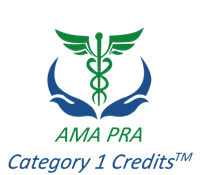Kathryn Walker
Wellington Hospital Acute Neurological Rehabilitation Unit, UK
Title: Using advanced technology to maximise patient outcomes in Stroke Rehabilitation from a Speech and language therapy perspective
Biography
Biography: Kathryn Walker
Abstract
Communication is a fundamental part of any human relationship – to share ideas, knowledge, feelings, needs and smiles. For patients with stroke, damage to speech and language centres in the brain can be a common and debilitating consequence, often requiring long periods of therapy. The overall objective of speech and language therapy in this context is to optimise individuals' ability to communicate, thereby improving quality of life. The role of technology in assistive communication therapies has grown over the years with the advancing skills and devices now available. Individuals with severe language or speech problems often rely on communication devices to supplement existing speech or replace speech that is not functional. These special augmentative aids help a person to express themselves by allowing the patient to interact with and control their environment. Having adequate assistive technology often means the difference between isolation and participation, and from dependence and independence. This presentation will explore the dynamic relationship between technology and communication after stroke, using patient case study examples from speech and language therapy services at the Wellington Hospital in London.

